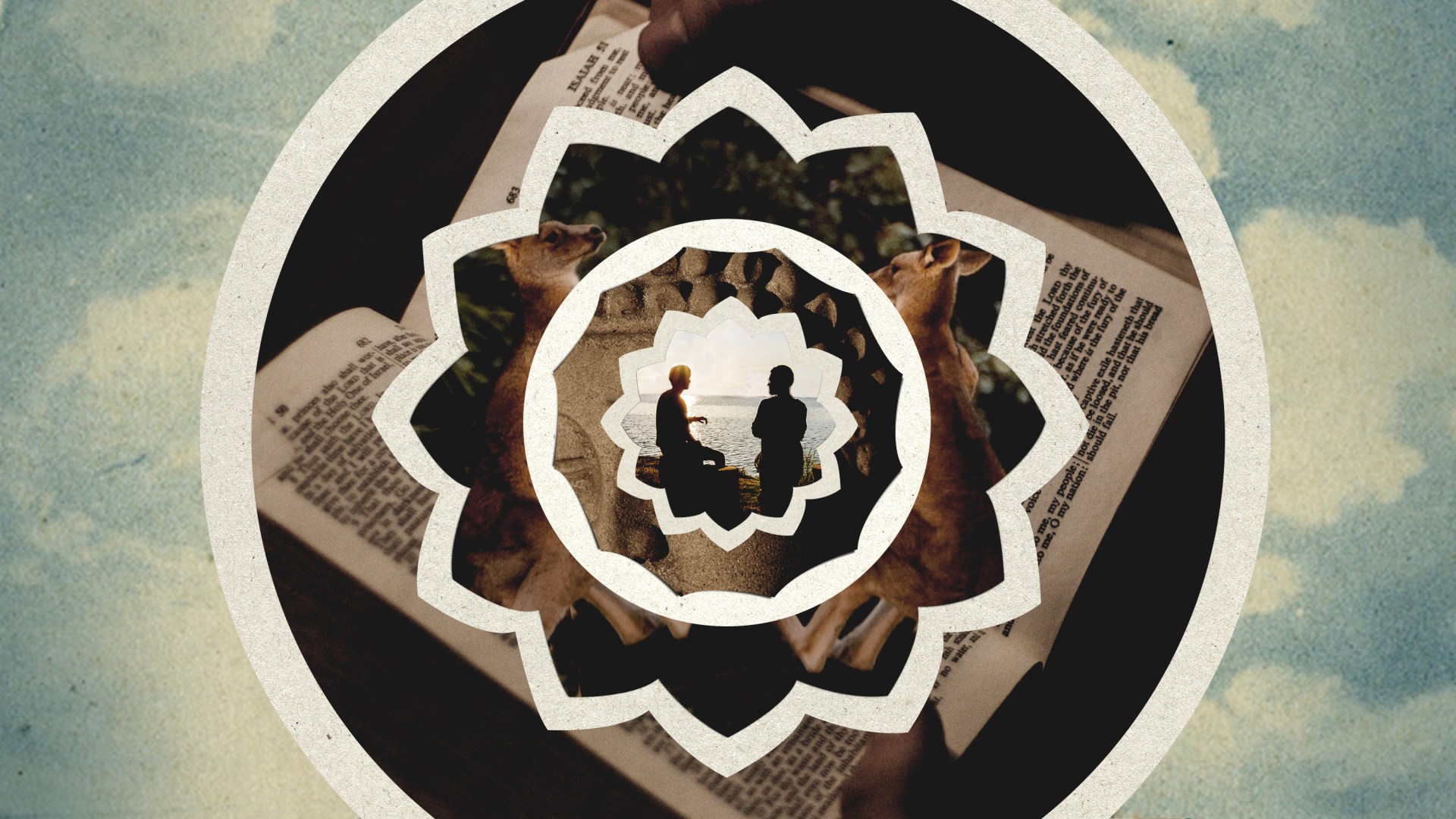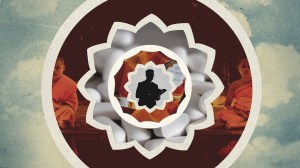In this series


Sydney is Australia’s second most populous city, with about 4.8 million people, and has one of the largest multicultural populations in the world—nearly half of its residents were born overseas. Based on the 2021 census, a little less than a quarter of the population is of Asian ancestry and 4 percent identify as Buddhists.
Yet Sydney churches don’t know how to connect with Buddhist-background immigrants in the city, especially those from Southeast Asia, according to Sage, a Thai-Chinese Australian woman ministering to the population. (Sage asked CT not to use her real name as it could impact her ministry.)
As someone with a foot in both worlds, Sage is working with Anglican churches in Sydney to bridge the divide and help them learn how to build trust within their communities and empower Buddhist-background believers. Her experience in this burgeoning ministry provides insights to Christians in the West who want to better engage Southeast Asian Buddhists. Below is a Q&A that has been edited and shortened for clarity.
Can you tell me about your background?
I’m part of two diasporas: I am of Chinese descent, and my mother is a Chinese-background Thai. I was born and raised in Australia by her and my Australian father. My father passed away early in my life, so I was really raised in Australia by someone in the Buddhist diaspora.
I wasn’t raised religiously Buddhist, but at the same time, I managed to inherit a lot of the worldview themes through my mom’s parenting. I think the biggest thing in classic Theravada Buddhism is the idea that there is only yourself to rely on and it’s a very lonely thing. You can go to the temple, but the worldview is that only through your own ethical practice can you be lifted into higher levels of rebirth and out of the suffering of the world. I think because of that, my mum’s always been someone who has refused help, who’s always relied on herself and taught me to do the same.
I grew up not knowing anything about Jesus, despite being in Australia. I didn’t have any real exposure to Christianity until I was 16 when my Christian friend invited me to her Chinese church. It didn’t take long between first experiencing Christian community and finding true inclusion there: People would fight to wash up my dishes and include me in games. That led me to want to know what they were singing about and who they were singing to.
My friend shared the gospel with me with a tract called Two Ways to Live. But I found it too confronting, and I didn’t like that. It was too abrupt, and it made no sense for me to convert so quickly. I also knew it would be a betrayal for my family, although at that time I didn’t know just how bad it would be.
So three months later, you became a Christian through this Chinese church. Can you explain how that was received by your mother?
It caused a lot of rupture in my family. Not over big things or doctrine, but over things like missing family dinner on Sundays, which was the only night my mom had free in a week as she ran a restaurant to put food on the table. When I invited my mother to church, she would freeze in the doorway. No one else’s parents did that. They might not come to church or politely come on Christmas and Easter, but no one else’s mother would freeze.
Later I came to better understand where my mother was coming from: Thailand’s the only country in the region that was not colonized. The gospel is viewed as foreign, and Thai people have this real inner strength to not contaminate themselves with that foreignness. Then her Chinese background reminds her of the Cultural Revolution when people were cut off from their families for participating in religion. All of those fears were there for her. And every commitment I made toward Jesus was just stabbing that wound deeper.
During this really challenging period of early faith, I had the riches of good discipleship and a campus ministry that gave me a solid understanding of the Bible. But I found myself asking the question “Why is it so hard to bring my mum to church?”
To find the answer, I started going to a small Thai Christian fellowship in our city. Through meeting other Thai Christians, I began to understand that my struggles with my family are common among Thai people who become Christians. It was a huge comfort to learn that it wasn’t my fault or my own personal failings that my family responded in this way.
Through the influences of that Thai fellowship, my mum and I now have a strong relationship. I needed a combination of Chinese, Thai, and Western churches for a well-rounded discipleship.
How did you begin to focus on Thai outreach in your ministry?
I started doing campus ministry after graduating college and felt challenged to serve less-reached and less-resourced people groups. That led me to look around and find that the less-reached group was my own.
Missions have been particularly hard in Thailand: Despite 200 years of Protestant missions in the country, only 1 percent of the country is Christian. There’s something about the soil that has prevented the gospel from taking root in the way it has in other parts of the world. Part of that is the way that the gospel is still seen as foreign. Foreign missionaries also made it worse by not contextualizing the gospel to locals.
I sought training through the Anglican Church in Sydney on how to relate to Buddhists, but it didn’t exist. They had trainings for Muslims but not for Buddhists. There still isn’t this type of training—I’m working to invent it.
This points back to a bigger global problem: Christians haven’t worked out how to engage well with Buddhists. What I’ve found is that the best way to learn is by listening to the voices of Christians from Buddhist backgrounds and amplifying those voices. That’s how I started this ministry: It was an unmet need.
If traditional evangelism doesn’t work for people from a Buddhist background, what is effective?
With that small Thai fellowship, I started doing small group Bible studies in Thai women’s homes using Oral Bible Storytelling. Because it was not a church setting, my family felt more comfortable sitting in occasionally. My mum might come along, but she wouldn’t join the Bible study. She’d listen while cooking dinner with someone else’s mum. And that would never have happened in a church.
Even though I’m not a native Thai speaker, I’d use simple Thai to help everyone understand. I’d use a lot of gestures and make it like a drama to make it memorable. And that was really good for a while. But then I realized we needed to not just do ministry on the margins but try and get the mainstream church to see that need and to respond to it contextually as well.
How did you pivot from a more personal ministry to a ministry with a larger scope?
That’s been the harder part of this. When you do ministry on the margin, you’re replicating the migrant experience. Southeast Asian migrants are accustomed to different powers rising and falling. When your country’s not in power, your best survival strategy is to stay on the sidelines and not disturb the peace. And that’s what Southeast Asian migrants do in Sydney. That’s why churches don’t have good engagement with these groups: The migrants make themselves invisible to survive.
If I’d kept running those Bible studies in homes, I would have kept my head down, kept myself invisible, and probably burnt out. But it would have been emotionally less demanding than what I’ve actually done.
I realized the scope of the problem was not just my mum, not just my city. It wasn’t even just Australia being far away from Asia. It was actually global. The global church has a problem engaging with Buddhists.
And I think one of the reasons is that we were missing the voices of Southeast Asian Buddhist-background Christians. We need to change the perspective and posture of local mainstream Australian churches. We can’t keep Buddhists in our blind spots. So what I’m doing is a coaching program where I meet with churches in parts of Sydney where there is a high concentration of people from Southeast Asian Buddhist backgrounds.
Do you have any examples of how Thai Christians have helped the local church become more welcoming to Thais?
There’s a woman named Joy whom I met 10 years ago in the Thai fellowship and studied the Bible with. She joined a ministry several years ago teaching English in a local church in Sydney. There’s nothing about this church that would attract Thai people to come, but it’s near Sydney’s central business district next to a train line. This is helpful, as a lot of Thai people commute on public transportation.
Through her connections in the Thai community, Joy made the church a safe place for people to come and learn English. In the past four years, 200 to 300 Thai people have come to the class—people who would never have otherwise stepped into a church building.
She’s broken the barriers down through relationships. What we need is for the local church to trust someone like her and support her. The challenge now is the Thai people are in the church building, but they’re not part of the core church ministries. And Joy wants them to be.
Joy said, “Look, the way I became a Christian is someone stayed with me after English class and spent extra time to help me with my English. During that time, they shared the gospel with me, and I asked questions about it.” She asked the English class teachers, “We’ve got six students in our class who want to stay behind. Is there anyone who would stay with them?” And she got no responses. She was devastated.
Our problem in Sydney isn’t that we don’t know how to explain the gospel, but our problem is that we don’t see or connect with people from other backgrounds all that often and all that well. And because we don’t have those relationships, we don’t have Christians engaging in the conversation about how to connect with other cultures.
How can Christians speak into this Buddhist worldview?
We need to understand that when Buddhists look at Christians, they aren’t interested in their doctrine as much as the ethical quality of their lives. They want to know, “Do you live a good life?” And if you do, you’ll be respectable in their eyes. It’s not what you say you believe but what you act on that’s important. Only then will you warrant a hearing.
I think the second thing is to build a relationship. It’s long term and high investment. I became a Christian through a friendship; I wanted to hear about the gospel because I liked my friend. When we connect with Buddhist communities, we connect with them in their suffering and also when they’re not suffering. We show personal care that is absent in the strict Theravada Buddhist.
In Theravada Buddhism, there is no caring, sovereign God; there is only karma. There is only being bandied about by the winds; there’s only uncertainty. So having a personal relationship is its own kind of witness that is distinctive from the worldview of karma.
Buddhists from Southeast Asia live with a constant fear that terrible things will happen. One way that you can speak into this belief is by walking with people. For instance, I have a friendship with a Thai couple that I’ve known for the past 10 years. I constantly help them with filling in forms for welfare payments. And they know that if they reach out, I will make time to be with them and fill in the same form over and over. I’m with them in their suffering.
From a Buddhist perspective, there is no God to be with them in their suffering. So that’s why they need to do good (or “make merit”) to get themselves out of their predicament. Whereas in the Christian worldview, there’s a lot that the Christian community does to relieve suffering. This will resonate with Southeast Asians’ commitment to the community due to their collectivist culture. And later, if they’re willing, it can help point them to a God who is with them in suffering.





















